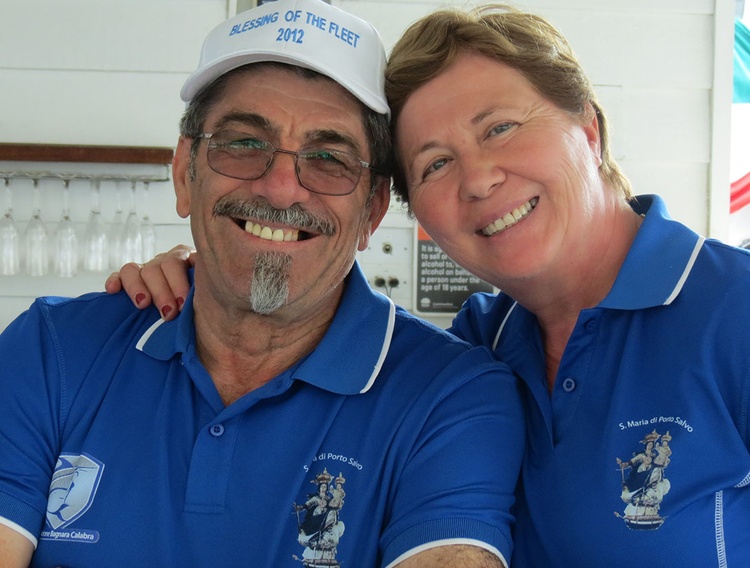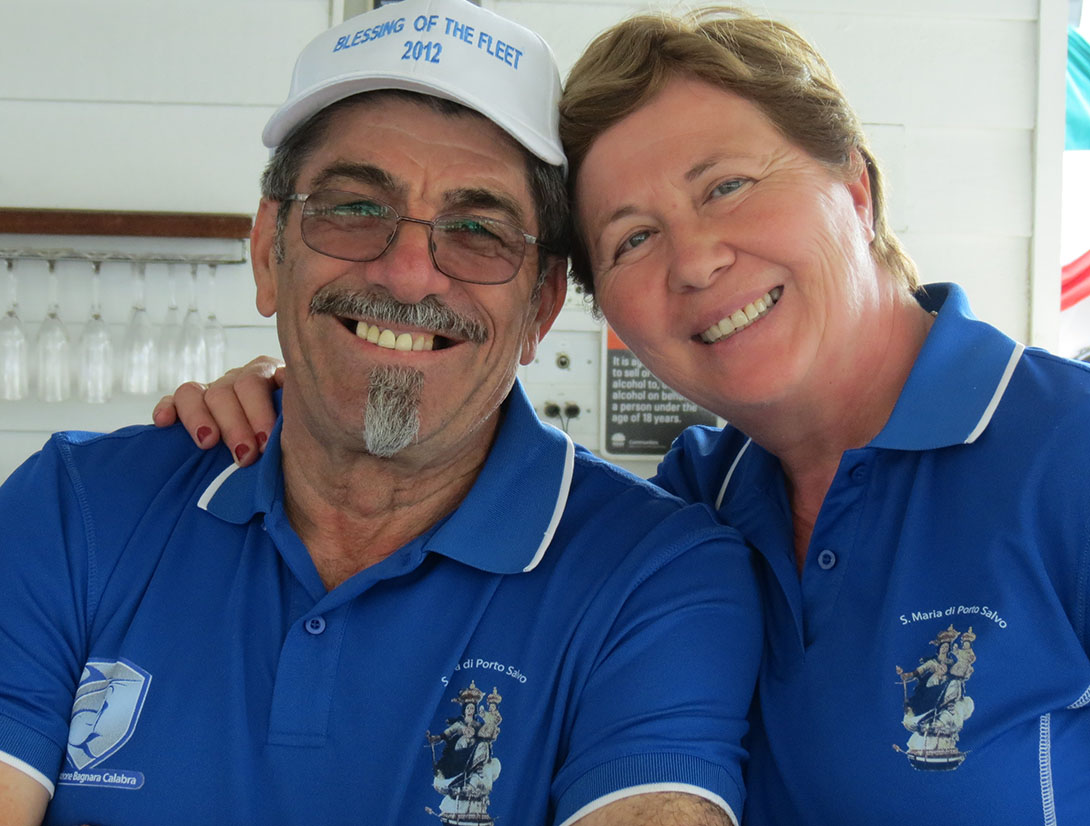Bagnato was born in 1955 and grew up in the Syracusan town of Lentini.
Employment opportunities were scarce at the time and her parents would constantly be on the lookout for work, so Bagnato was mostly raised by her grandmother and elder sister, Giovanna.
“I’m not ashamed of being raised in a poor family, because poverty is life,” Bagnato says.
“True wealth is measured in other ways.”
Bagnato would go to school in the afternoons, because only the wealthy children could attend the morning sessions.
“School was fun for me,” she says.
“I loved doing maths on the blackboard.
“I learned the times tables quickly, because a man told me he would give me 50 lire when I could recite the two times table.”
Bagnato would visit the man every time she learned a new set of multiplications.
“My father didn’t let me keep the money,” she says.
“He gave me 10 lire, which was enough for me to buy liquorice, or some sweets.”
A teacher noticed that Bagnato was having trouble reading the blackboard, and summoned her parents to discuss the problem, but they couldn’t afford to miss a day of work.
Her sister, Giovanna, had been in Australia for a year and encouraged the family to follow her to Sydney.
In order to leave Italy, the family underwent medical assessments.
Bagnato’s severe shortsightedness, as well as her younger sister’s vision problems, caused the embassy to reject the family’s application.
“In order to leave, we both had to wear glasses to correct our sight,” she says.
“When I was assessed, they told me that I’d lose my sight if I didn’t start wearing glasses straight away!”
When the family’s application was finally approved, they boarded the Galileo Galilei in Messina, the ship that would take them to Sydney.
They arrived in Circular Quay on April 28, 1965, after 28 days at sea.
“It was a fun trip,” Bagnato says.
“There was a nanny on board and an area reserved for the children to play in.
“I remember winning a doll and a record playing Le colline sono in fiore (The Hills Are In Bloom).
“I was very lively – I even broke my glasses playing with the other children!”
The family’s first residence was a house in Paddington.
“My family and I were lucky to come to Australia,” Bagnato says.
Bagnato learned English quickly and was able to carry out conversations after just three months in the country.
At 10 years old, she was enrolled in Grade 3 at a local school, and would stay after class to clean the blackboard or work through complex maths problems on the board.
Bagnato had just finished Grade 6 when her plans changed drastically.
“I had met a boy eight months earlier,” she says.
“His name was Salvatore, and he had a family waiting for him in Sicily for an arranged marriage, which happened in large families at the time.
“We decided that our only solution was to elope; we were very young.”
In September 1968, before school had started, they ran away to Ashfield for three days.
Bagnato’s future husband called her father to confirm that he would take responsibility for his beloved, and from that day forth, he kept his promise.
Bagnato returned to school and had to justify her absence, with her father present.
Translating for her father, she lied to the nun in charge, saying that she had been kept at home.
“I was expecting a child and I was nervous that my peers would judge me harshly,” she says.
“I never regretted my choices; I had 44 wonderful years with Salvatore, who was a great husband, a great father and a beautiful person.”
After turning 15 years old, Bagnato applied for a marriage licence from a magistrate in Newtown.
The judge refused her plea, telling her to wait until she was 16 to be married.
The following year, Father Romano married the young couple in St Fiacre’s Church.
“There were no celebrations,” Bagnato says.
“My parents waited for us at home with the cake that I had bought at the Mezzapica pastry shop the day before.
“On June 18, I turned 16 years old and on June 27, our first child, Caterina, was born.
“We raised five children who gave us wonderful grandchildren.
“We always supported each other and our life together was fantastic.”
For their 25th wedding anniversary in 1995, the couple threw a large party with over 200 guests in attendance, including family and friends.
Watching all their loved ones celebrating together gave Salvatore the idea to start an association that would honour their shared culture.
Thus, the Bagnara Calabra Association of Sydney was born.
“I immediately supported my husband’s idea of keeping our traditions alive,” Bagnato says.
“He brought over some typical Calabrian items from Italy, such as ceramics, a scale for weighing fish and costumes used to dance the tarantella.
“These items had great sentimental value for us and helped us to keep our Italian culture alive.”
In 2013, Salvatore sadly passed away after contracting a disease.
“They took him to the hospital,” Bagnato says.
“While our children came to join us, the youngest son had an accident.
“He was operated on, and placed in the same room as his father.
“I didn’t leave their sides, even for a day.
“I understood then that life can change in a second.”
Bagnato showed great strength in overcoming the loss of her husband, all the while caring for her son throughout his recovery and carrying out altruistic acts for the most vulnerable members of the community.












